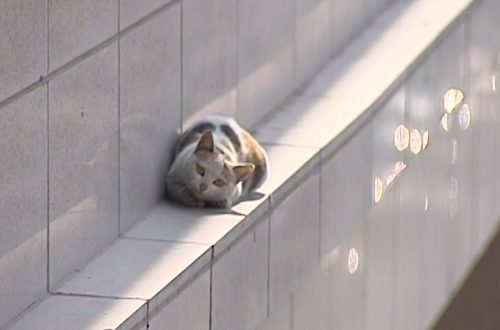
Stress and urinary problems in cats
It may seem that cats have a calm and measured life, but in fact they are quite easy to unbalance. Problems with urination can be one of the first signs of stress in a pet. It is important for cat owners to know what are the symptoms of stress and how to help their furry friends in this situation.
Contents
Unusual urination behavior
When cats are happy and healthy, they use the litter box for both urination and defecation. The following are behaviors for cats experiencing urination problems due to stress or suffering from feline urological syndrome. If your pet has any of the following, it may be a sign of an illness:
- tension during urination;
- urinary incontinence/inability to control the bladder;
- urination past the tray;
- loud meowing from pain during urination or attempts to urinate;
- licking the genital area;
- reduced appetite.
For most cats, the above signs appear when their emotional stress reaches the limit or when they have medical problems. If the cat hides, becomes less affectionate, her eating behavior has changed, she is either only urinating or only defecates in the litter box – note that this behavior may be an early manifestation of stress. However, in some of them, signs of the urological syndrome appear suddenly, without any prior changes in behavior. At the first signs of urological syndrome, you should contact your veterinarian to determine whether a visit to a specialist is necessary or you can first try to solve this problem at home.
Identifying sources of stress
If your cat is acting out of the ordinary while urinating, or is constantly going past the litter box, it’s important to determine what might be making her nervous. During a phone call, the veterinarian may ask you a few questions to find sources of stress. For example:
- When did your cat start urinating differently than usual?
- Have you changed her food or litter lately?
- What other symptoms accompany problems with urination?
- Has your home or apartment recently undergone any major changes, such as a reshuffle, a new pet, the birth of a child, or the death of a family member?
Remember that cats often feel the state of their owners, so you need to analyze your emotions as well. Have you been stressed lately? Has it started to affect your everyday life? If your normal life has changed due to stress, then the same probably applies to your cat. The most common manifestations of overexertion in people are insomnia or, conversely, increased drowsiness. The condition of the owner can throw the cat out of balance; symptoms of her stress may show up as a change in her urination behavior.
Short-term and long-term stress
Major changes in a cat’s life, such as a move or a new pet, can cause short-term stress. Most animals adapt fairly quickly to these changes, but some remain in this state for a long time, which leads to problems with urination. If you identify the source of stress in a short time and give the cat the attention it needs, these problems will quickly disappear.
It is much more difficult to cope with long-term stressful situations that cannot be quickly changed. They can cause more serious urinary problems. According to Live Science, scientists have found that the most common long-term stressful situation for cats is poor relationships with other cats in the house. A cat needs time to get used to a new pet in the house, and short-term stress is to be expected. However, due to the strained relationship between the two cats, stress can manifest itself in the form of urinary problems. As a result, the situation will become uncomfortable for everyone.
How to help a cat
If your cat is having trouble urinating due to increased nervousness, it’s best to see a veterinarian. Depending on the sources of stress, the specialist will prescribe medications and/or special cat food that relieves urinary problems and helps cats gradually return to normal life. In addition, your veterinarian can give you advice on how to make your home more comfortable so that all your furry pets feel at ease. If they do not get along, feed them separately from each other, buy them different trays, beds, provide everyone with enough space so that they do not unnerve each other.
However, sometimes the problem can be solved simply by giving the cat more time, showing that you love it, calming it down. Also keep the litter box clean, the whole house clean, and the cat’s hygiene more carefully. This will help relieve nervousness and reduce or eliminate urinary problems. Unfortunately, urinary problems in cats caused by stress usually take weeks or even months to resolve.
Once you’ve identified the cause and found ways to reduce your cat’s stress levels, it’s important to help her cope with the situation. And don’t forget about your emotional state! A creative way to reduce stress levels for you and your cat is to practice yoga together. Some big cities may have pet yoga groups. This is great for cats that quickly get along with other cats and dogs. If your cat is more of a loner by nature, you can practice at home: there are a lot of cool videos on the Internet on teaching yoga with pets.
To manage your cat’s stress, it’s also very important to give her a stress-free life. If there is a change in routine or major changes (moving, a new person or pet in your house, etc.), try to prepare your pet for such events. You need to understand what objects and toys your cat likes. A little more attention and affection – and your pet will feel safe. It might even help her take her mind off the upcoming changes. Also, don’t forget to keep the litter box clean and provide your cat with a quiet place to rest.
Preparing for stressful situations and constantly monitoring your cat will help you recognize the first signs of nervousness and avoid problems with urination. Be careful – and your pet will live a healthy and happy life.





